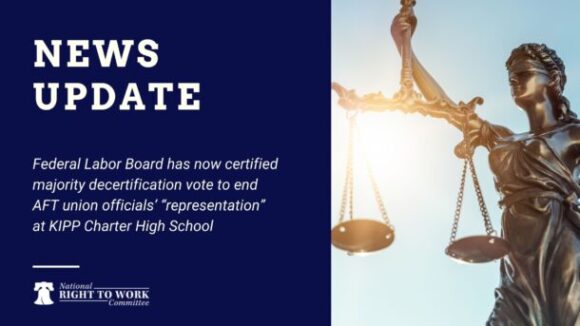Will Team Biden Weaponize Workers’ Pensions?
Big Labor abuse of worker pension and benefit funds as a means of advancing union bosses’ self-aggrandizing policy objectives is a familiar phenomenon.
A Right to Work law guarantees that no person can be compelled, as a condition of employment, to join or pay dues or “fees” to a labor union.
Such a law also reaffirms and strengthens the existing federal labor-law provisions that bar (prevent) hiring discrimination against non-union members. Section 14(b) of the Taft-Hartley Act affirms the right of states to enact Right to Work laws.
Currently 27 states have passed such laws.

Big Labor abuse of worker pension and benefit funds as a means of advancing union bosses’ self-aggrandizing policy objectives is a familiar phenomenon.

What impact does handing a union monopoly power to deal with your employer on matters concerning your pay, benefits, and work rules have on your pay?

Federal Labor Board has now certified majority decertification vote to end AFT union officials’ “representation” at KIPP Charter High School